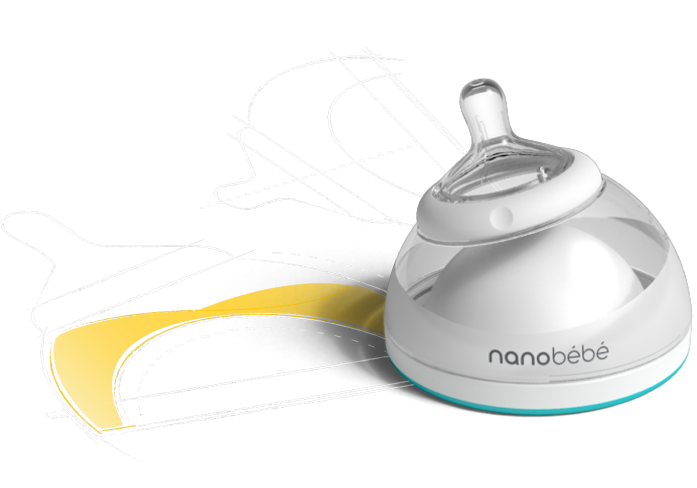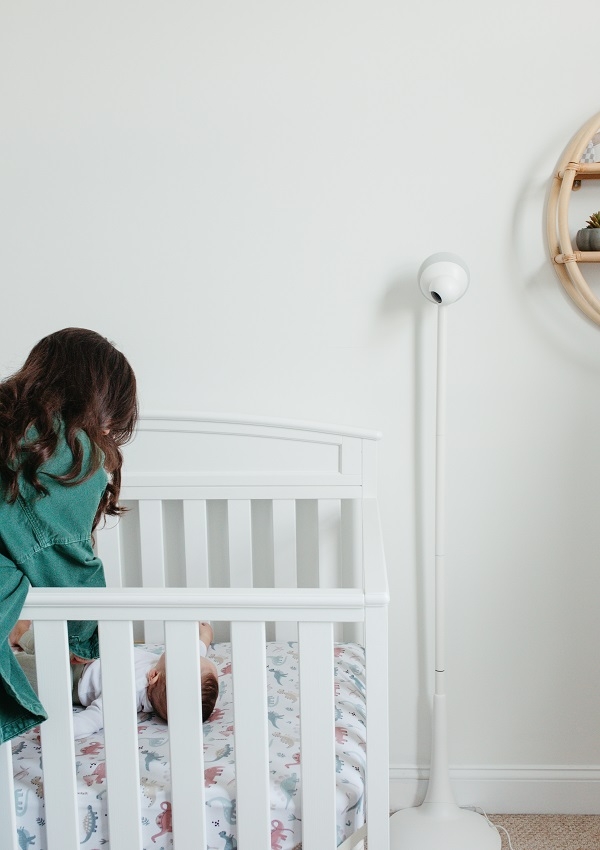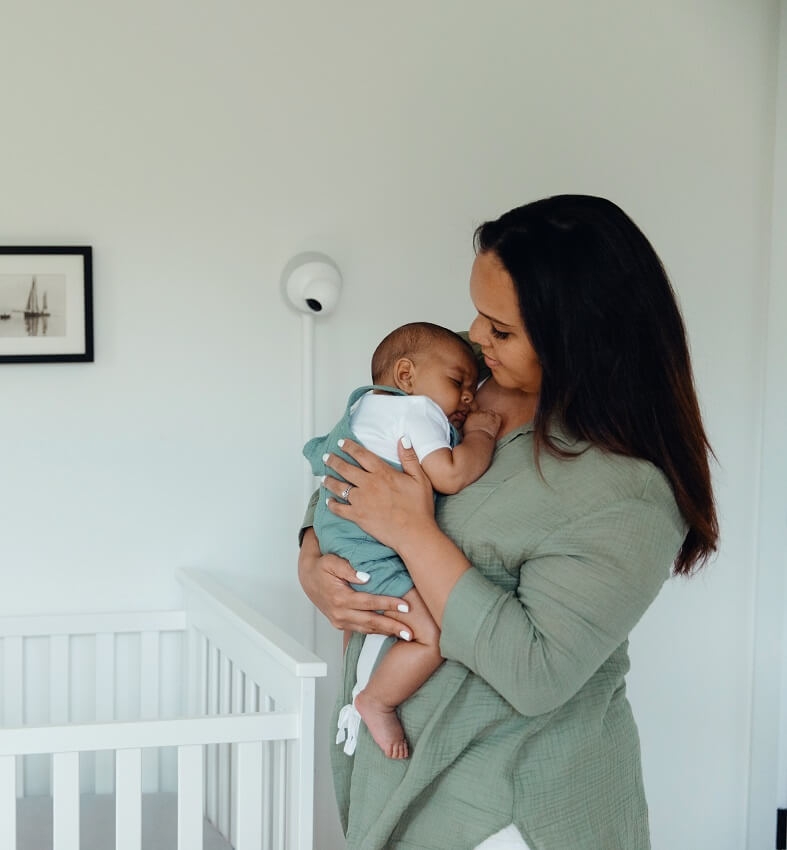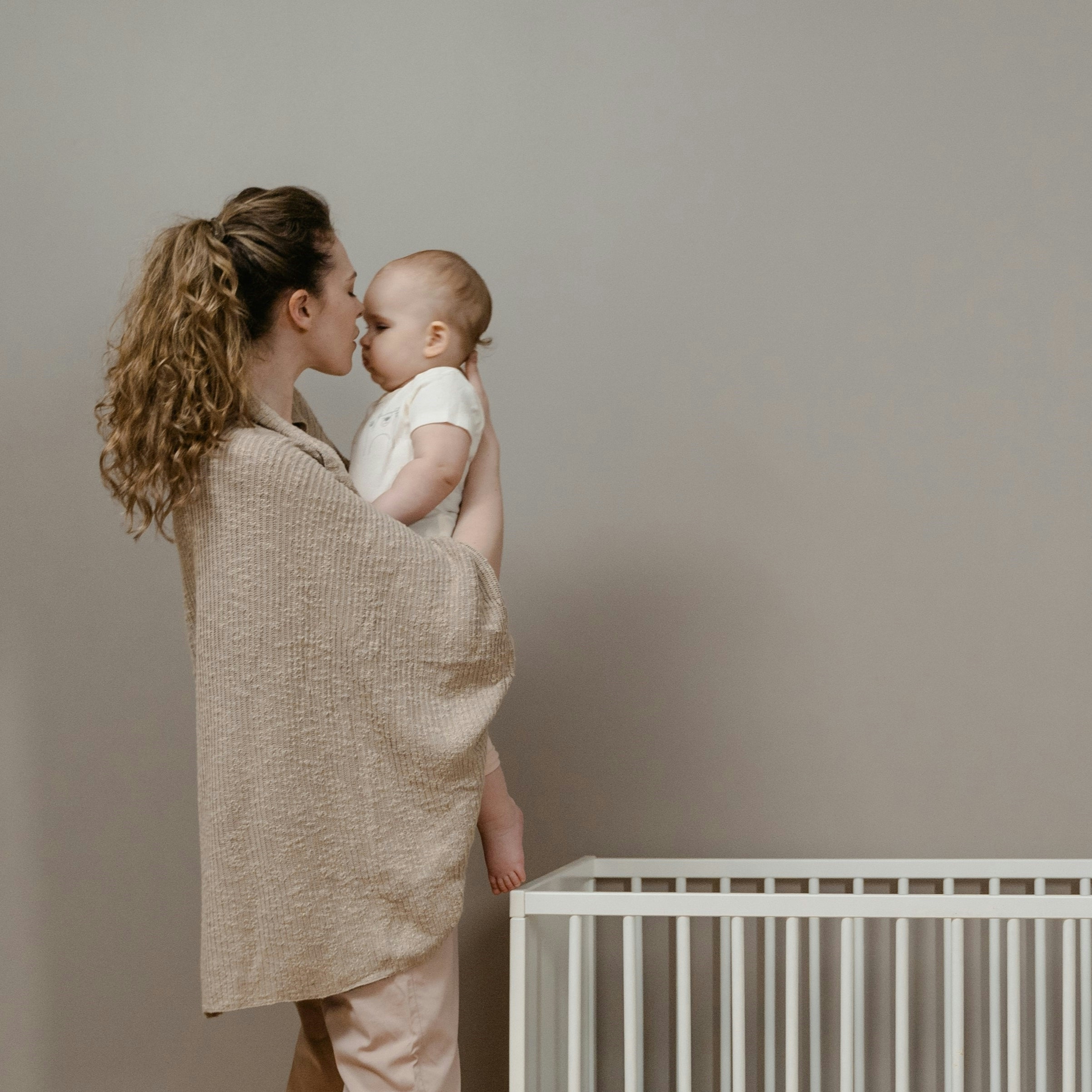5 Ways to Naturally Improve Your Baby’s Sleep
Discover effective ways to optimize your baby's sleep without sleep training.

Noeline Marais

There is nothing quite like the smell and snuggles of a new baby. Although most parents are aware of the disrupted sleep in the early months of parenthood, many aren’t quite prepared for how truly unpredictable (and out of our control!) baby sleep can be! Disrupted sleep is a normal part of early childhood, way beyond the newborn period. There is so much pressure on new parents to get their baby to sleep a certain way, and when they don’t sleep quite like they expected, it can cause a lot of frustration and anxiety.
Since sleep is a biological function and is not exactly within our conscious control, here are some ways you can help optimize your little one’s sleep without sleep training:
1. Help Establish Your Baby’s Circadian Rhythm
Newborns have unpredictable circadian rhythms, and often have their days and nights “mixed up”, or rather, they have no clue when it’s day and when it’s night! They need some help and support to establish better sleep patterns.
To help support your child’s circadian rhythm, your best bet is exposure to natural sunlight. Our body clock is heavily influenced by light. Noeline recommends that you keep days bright and noisy and try to take your baby outside throughout the morning and late afternoon. A couple of hours before bedtime, you can start adjusting your home environment and make it more dim, calm, and quiet.
Because little babies often don’t have much of a natural rhythm yet, it can be helpful to bookend your day with a set wake time and bedtime. Timing your baby's wake periods can really help to establish a more predictable flow to your days. However, remain flexible with a 30-minute window of variability.
2. Find Your Baby’s Unique Sleep Timings
Finding the balance between daytime sleep and nighttime sleep can be a bit tricky, but is so worth it! Our children’s sleep is governed by hormones, homeostatic sleep pressure (the build-up of tiredness throughout the day), and their circadian rhythm. If your baby’s sleep timings are off, their sleep pressure is building which can lead to them being over-tired or not being tired. The tricky part, though, is that there isn’t a one-size-fits-all when it comes to sleep timings. Every child is unique! You need to find the sleep timings that work for your little one.
When you start implementing standard “wake windows”, you often encounter sleep timing issues. This can happen if you are following pre-set wake windows too strictly. It’s really important to tune into your little one to find the unique sleep timings that work for them. Some babies need to nap more frequently, some need longer wake periods before they’re ready to sleep. Therefore, it’s recommended that you use standard wake windows as a starting point and adjust them based on your baby’s needs. Here is a free guide to wake windows and sleepy cues that you can use as a starting point.
3. Ensure Appropriate Feeding
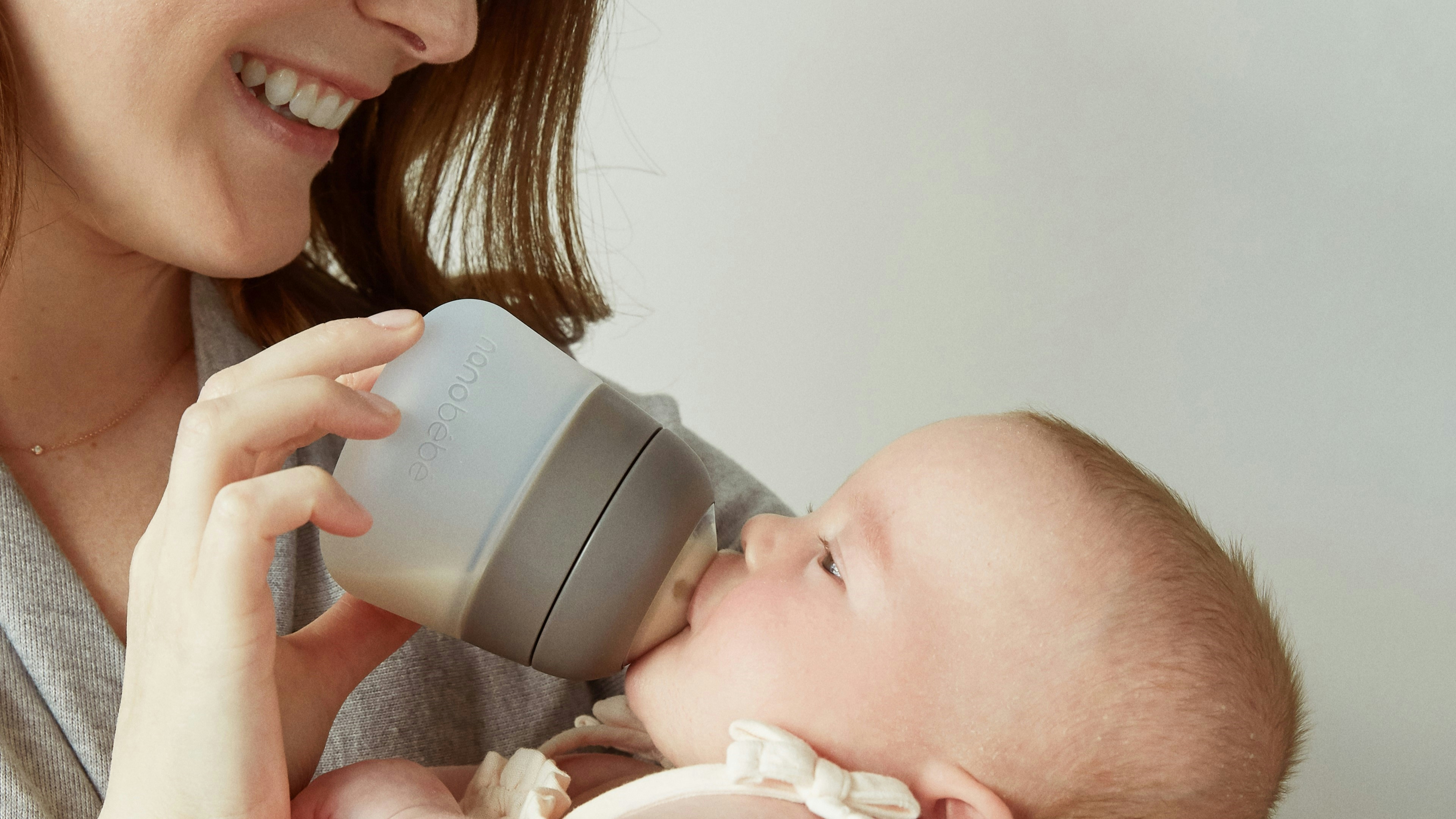
Feeding and sleep are closely linked, and if your baby is not feeding well, or experiencing feeding challenges, it will likely impact their sleep. You want to ensure that your baby is getting full feeds and that they’re getting most of their calorie intake during the day. For older babies and children there is also a close link between nutrition and sleep, so offering a varied, nutrient-rich diet is important.
If you’re experiencing any feeding challenges or notice feeding red flags, I suggest you address that before considering any sleep work. This includes signs of oral restrictions, reflux and food sensitivities / allergies.
4. Movement, Free Play, and Sensory Exploration
Children have a certain amount of energy that needs to be expelled throughout the day, and they have unique sensory needs… both of which can impact sleep! When your days are overscheduled and your little ones are contained too much, it could contribute to more disrupted sleep. Allow for loads of free play and sensory exploration where possible.
Additionally, young kids are learning new skills every day and they need opportunities to practice these skills! This is especially important during “sleep regressions” or periods of increased motor development. Learning consolidates in sleep, so it’s natural that their sleep might be disrupted during these periods, but we can help it along by offering more opportunities and support to practice these skills
5. Create an Optimal Sleep Environment
Just like adults, children need a relaxing environment to wind down in and to help them remain asleep throughout the night. Children naturally spend more time in the lighter phases of sleep, so if something in their environment is bothering them, it’s much more likely to wake them up. Consider environmental factors like lighting, sound, and temperature to ensure a comfortable sleep environment. Also, think about how stimulating or calming their sleep space might be. Busy murals, bright colors, bright overhead lighting, and loads of toys can make a space feel more energized and geared toward play, rather than sleep.
There is so much that can impact your child’s sleep, and most of what they’re experiencing is normal and developmentally appropriate. You can do everything right, have the perfect routines and environment, consider every part of the puzzle, and your baby might still wake through the night. Just because it’s normal, doesn’t mean it’s easy!
If you’re going through a phase where sleep is more disrupted than usual, it’s so important to prioritize your own rest as much as possible. And of course, if you feel your baby or young child’s disrupted sleep is not “normal”, reach out to a sleep specialist.
References:
Touchette, E., Dionne, G., Forget-Dubois, N., Petit, D et al, "Genetic and Environmental influences on daytime and nighttime sleep duration in early childhood", Pediatrics,2013
Price, A.M, Brown, J.E., Bittman, M., Wake, M., Quach, J., Hiscock, H., "Childrens sleep patterns from 0 to 9 years: Australian population longitudinal study, 2014
Ball, H.L, Taylor, C.E., Douglas, P.S, & SBY working group(2020). Development and evaluation of "Sleep, Baby and You" - an approach to supporting parental well-being and responsive infant caregiving
Jenness, R., "The composition of human milk", semin perinatol.,1979
Hartmann, E., "Effects of L-Tryptophan on sleepiness and on sleep", journal of psychiatric Research, 1982
Peirano, P et al., "sleep alterations and iron deficiency anemia in infancy", sleep medicine, 2010
Foley, L.S, Maddison, R., Jiang, Y., Marsh, S., Olds, T., Ridley, K., “presleep activities and time of sleep onset in children”, journal of pediatrics, 131(2), 2013
*Nanobébé is thrilled to welcome guest bloggers. The views and opinions represented in these blog posts belong solely to the guest blogger and are not the legal responsibility of the company. The owner of this blog makes no representations as to the accuracy or completeness of the information provided by the guest blogger and will not be held liable for any errors or omissions of information nor for the availability of this information.

Noeline Marais
Noeline Marais is an Internationally certified Pediatric Sleep specialist and a mom of 2 boys. As a health professional with over a decade of experience working, she has dedicated the last 3 years to supporting families to help them improve their infant's sleep. She aims to leave every family feeling more informed, confident and connected, while normalizing the experience of early childhood. Learn more about her work on www.rootofrestful.com or on Instagram @root_of_restful.
Share this post
